The World Cup champions of Argentina, led by Lionel Messi, were welcomed home by millions of happy supporters on Tuesday, but many were disappointed when an open-top bus procession had to be postponed due to the large number of spectators in favor of a hastily planned helicopter tour.
Massive crowds of jubilant supporters cheered on their heroes along the whole 30-kilometer parade route from a suburb of Buenos Aires to the city’s heart, but this made for agonizingly slow movement.
The bus had crawled along for almost five hours as the throng celebrated the team’s thrilling penalty shoot-out victory over France in the World Cup final, before the decision was made to trade the bus for a chopper.
“It was impossible to continue on the ground due to the explosion of popular joy,” presidential spokeswoman Gabriela Cerruti said on Twitter.
It meant that many fans, including the largest congregation at the iconic Obelisk monument in central Buenos Aires that has for decades been the epicenter of sporting celebrations, did not get to see their idols in the flesh.
“I’m a little bit sad that we weren’t able to see them,” said Marta Acosta, 35, who traveled into town from a southern suburb at 5:00 am.
Claudio Tapia, president of the Argentine Football Association (AFA), blamed police for the decision to abandon the victory parade.
“They are not allowing us to go and greet all the people at the Obelisk,” said Tapia on Twitter.
“The same security agencies that escorted us are not allowing us to continue. Thousands of apologies in the name of all the champion players. It’s a shame.”
Hordes of revelers wearing the national team’s blue and white replica shirts and draped in flags sang, danced and set off fireworks throughout the day, with many camping out all night to secure spots along the parade route.
But three hours into the procession, the bus had barely covered a third of the planned path.
Eventually, the vehicle was ditched.
Instead, Messi, coach Lionel Scaloni and midfielder Rodrigo De Paul took the World Cup trophy with them for a helicopter ride over the main parade sites, including the Obelisk, police said.
Messi and winger Angel Di Maria then took a private plane to their hometown of Rosario, alongside forward Paulo Dybala.
As Messi and Di Maria boarded another helicopter to take them to the private neighborhood where they own homes, Dybala continued on to his hometown of Cordoba, an AFP photographer said.
Back in Buenos Aires, many continued to celebrate but for some fans, the short-circuiting of the party was inevitable.
“Only someone who does not know what football means to the Argentine people could think this was not a possibility,” Roman Garcia, 38, told AFP.
An estimated five to six million people had lined the parade route, a government source said.
Television images showed two men trying to jump from a bridge onto the players’ bus. One succeeded but the other missed and fell into a crowd of people.
As the evening wore on, minor clashes broke out between fans — some clearly inebriated — and police who moved to evict a small group that had forced its way into the area around the Obelisk, AFP reporters witnessed.
Stones were thrown and rubber bullets were fired. The TN network said 13 people were arrested and eight officers injured in the melee.
Authorities did not immediately confirm those figures. But city officials earlier said 16 people had been hospitalized throughout the day.
After arriving home from Qatar in the early hours of the morning, the players spent a short time resting at the Argentine Football Association training complex in the Ezeiza suburb of the capital.
Tuesday had been declared a public holiday for the celebrations.
“This trophy that we won is also for all those that did not manage to win it in previous World Cups we played, such as Brazil 2014,” Messi said on social media, referring to the team that lost 1-0 to Germany in the title match eight years ago.
After a thrilling 3-3 draw in the final in Qatar, Argentina prevailed 4-2 on penalties to win their first world championship in 36 years.
As a result, Messi, 35, was able to deliver one of the greatest World Cup final performances, scoring a first-half penalty and then again in overtime, to ultimately cap off his record-breaking career with football’s top honor.
In doing so, he followed in the footsteps of Diego Maradona, who succeeded him as Argentina’s national hero and led his nation to its second world championship in 1986 with a string of match-winning performances.


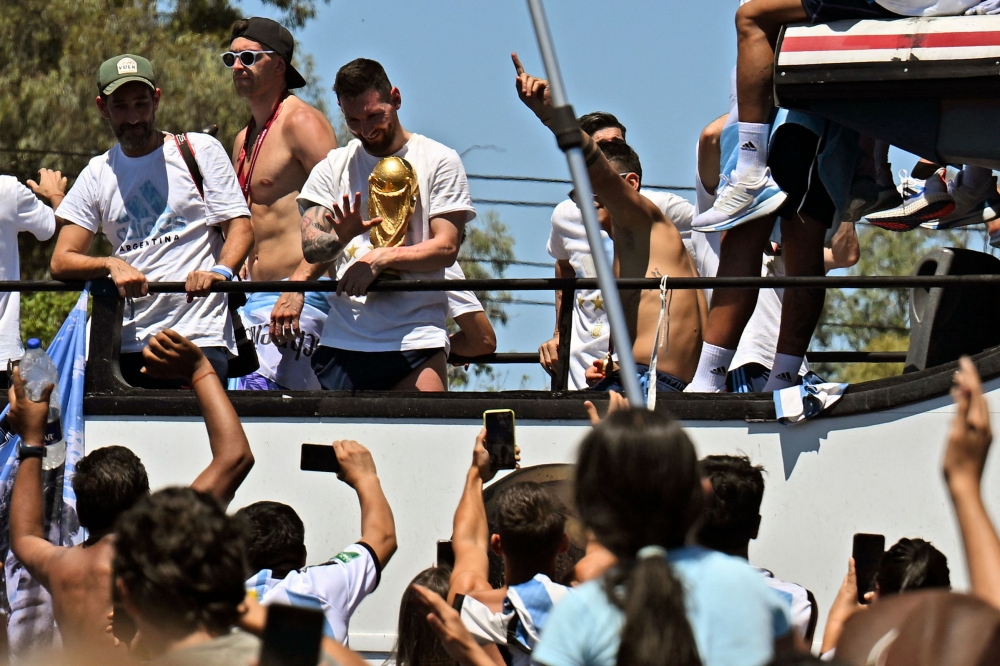


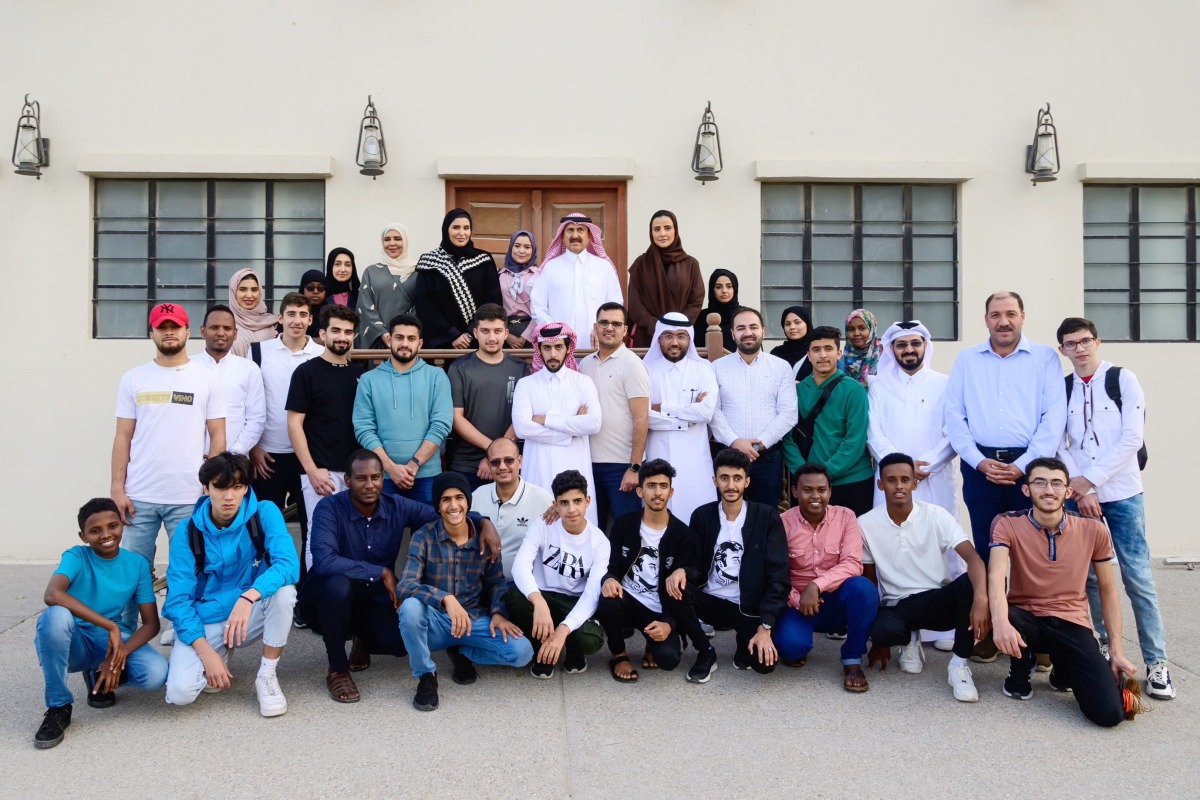
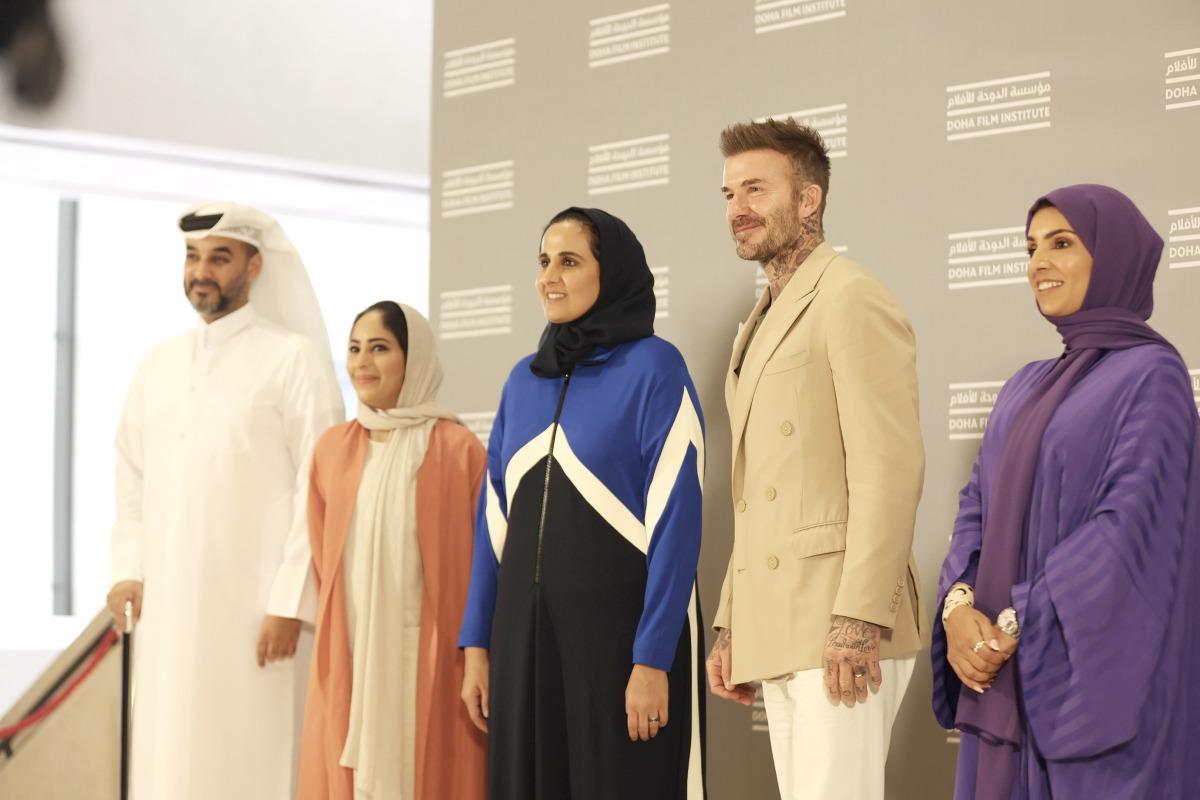
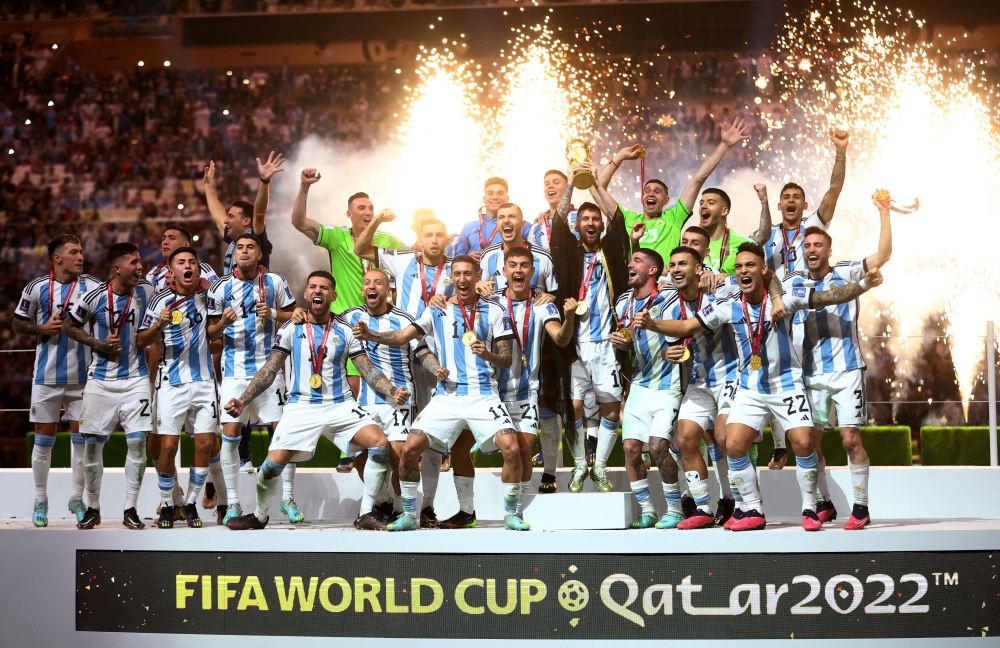
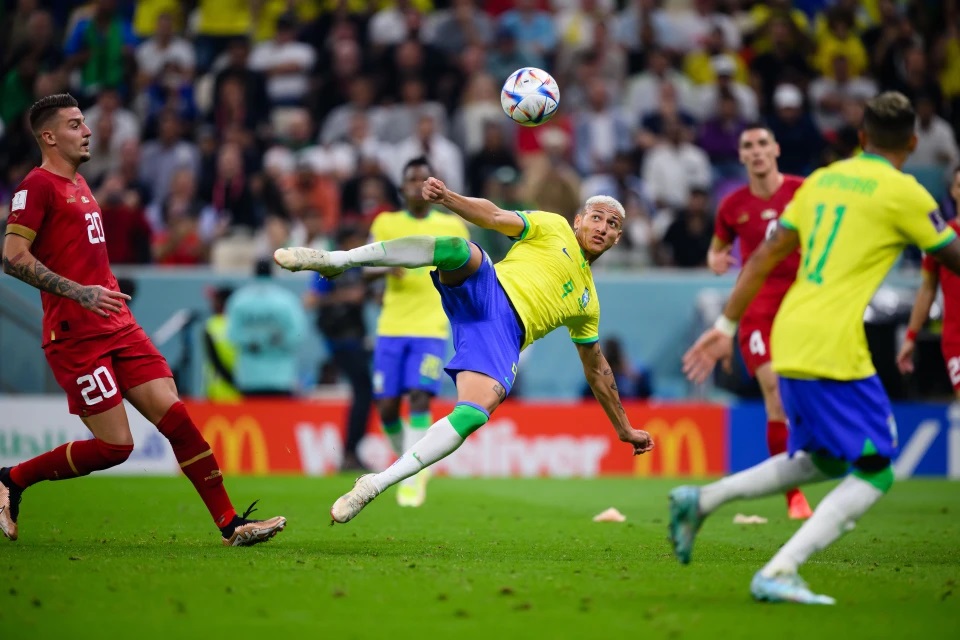



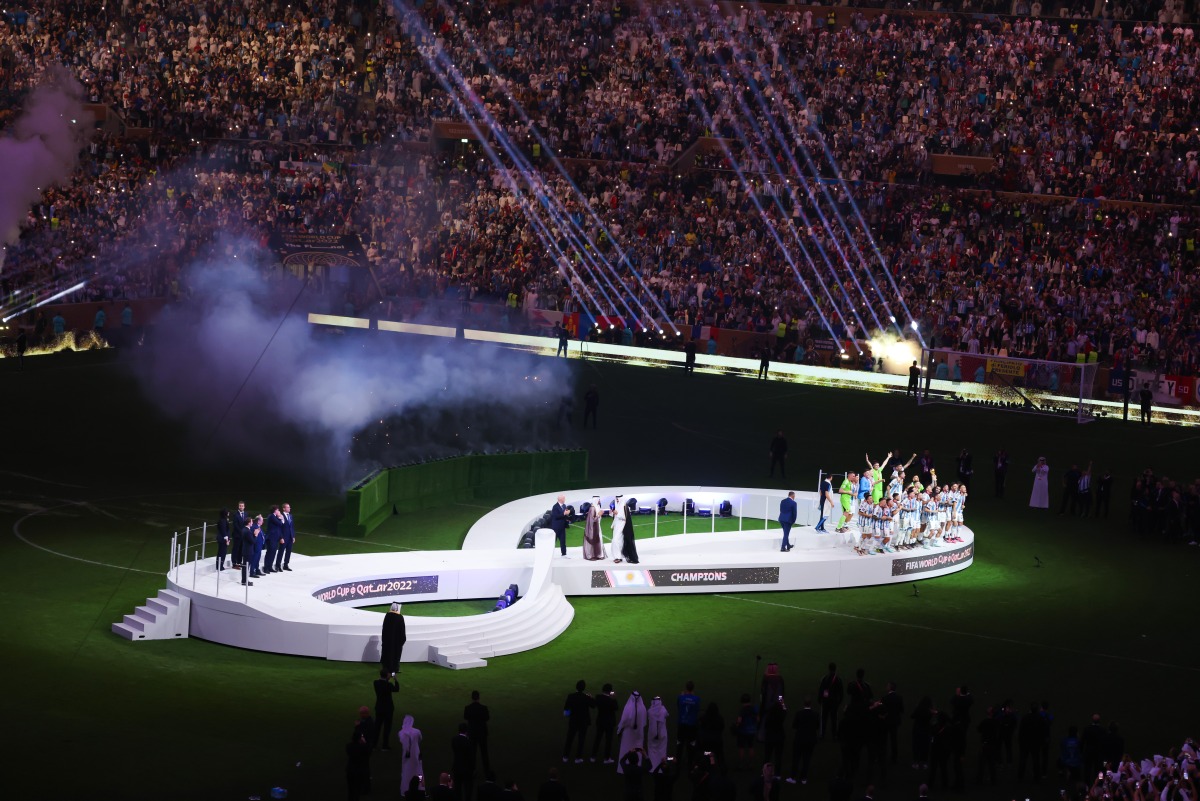




Leave a Reply